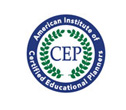Is there an advantage to sending my child to boarding school rather than a local school?
Many families choose boarding schools for their children because of the excellent college preparation that the schools provide. With small class sizes, diverse curricula, and individual attention from faculty and advisors, the boarding school experience gives students many distinct advantages. Boarding schools also have the resources (like daily study halls and extra help, one-on-one tutoring, writing centers and learning resource centers) to help academically struggling or under-motivated students realize their abilities and excel.
Are most boarding schools similar?
No, boarding schools are highly varied and it is important to understand the differences to determine what is most appropriate for your child. Among other thing, schools differ on size, distance from urban areas, ratio of day to boarding students, diversity of students, whether they are co-ed or single sex, whether the educational philosophy is traditional, developmental, or progressive, and whether there are programs for students with special learning needs.
Are all boarding schools filled with academically competitive students?
No, there is a boarding school out there for every type of student and with every type of atmosphere. There are schools that focus heavily on providing a solid and rigorous pre-college curriculum, but there are also other types, such arts schools that allow students to pursue advanced study in subjects such as dance, writing, theater, music, and/or visual art. Boarding schools will generally fit into one of the following categories:
- All Boarding: All students board and there are no day students
- Boarding/Day: Most students board but some commute from local areas
- Military: Schools that follow a military structure and often require uniforms and drill practices
- Co-educational: Schools that accept both boys and girls
- Single Sex: Schools that accept only boys or only girls
- Religious: Schools that are affiliated with a specific religion or denomination
- Pre-professional Art: Schools that specialize in training musical, performing, and visual arts
- College Preparatory: Schools that seek to prepare students for the rigors of college life
- Therapeutic: Schools that are directed at students experiencing difficulty in traditional settings and may be facing behavioral or emotional challenges
- LD Schools: Schools that specialize in programs and support for verbal and non-verbal learning disabilities
What are the different educational philosophies?
The traditional is structured and teacher-centered, with clear expectations and rules. The three Rs are emphasized. The developmental is based on the premise that children learn and grow in different stages. Self-discovery and social skills are given greater weight. The progressive is student-driven, with less emphasis on such conventions as letter grades.
How much will it cost?
Tuition can be expensive, but most boarding schools offer financial assistance to make sure that the students they’ve admitted have a realistic chance to enroll, no matter what their families’ financial status. The Average median tuition for all grades at boarding school is $40,000. Approximately one-third of all students at boarding schools receive some need-based financial aid.
Are SSAT results an important admissions factor?
Some independent schools assign great value to test results. However, it is just as true that many schools regard testing as only one part of the application process. Many place equal value on the applicant’s campus interview, the student’s record of achievement, teacher recommendations, and student/parent written statements.
When do we start the application process?
Most boarding schools admissions and financial aid timelines are similar to a college timeline. Applicants start the process almost a year before they plan to attend. Not all schools have the same application deadline, and some schools have rolling deadlines. Generally however, application deadlines fall around mid-January, with notifications of admission decisions occuring in mid-March.
How many schools should we apply to?
Apply only to schools you would actually send your child to, but make sure you apply to more than one. You will need at least one or two fallbacks — or, for very competitive schools, perhaps even more. Our process involves helping a family to choose schools that represent safety, target, and reach choices.







Follow us